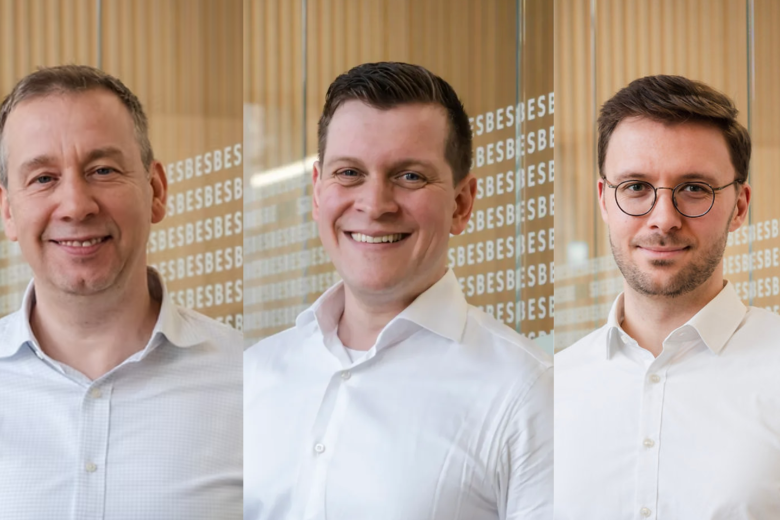Andy Mackenzie awarded a Veni grant for his project 'Robust decentralized institutions'
We are happy to announce that SBE’s Andy Mackenzie was awarded a Veni grant worth up to 250,000 euros by the Dutch Research Council (NWO) for his project on robust decentralized institutions.
Veni grants are awarded each year by the NWO and are aimed at excellent researchers who have recently obtained their doctorate. The grant provides the laureates with the opportunity to further elaborate their own ideas during a period of three years. This year, a total of 1,127 researchers submitted an admissible research proposal for funding. 161 of these have now been granted.
In light of this exciting news, we reached out to Andy Mackenzie for a short interview.
Can you tell us about the project for which you were awarded the Veni grant?
'Over the last few decades, more and more markets have been designed as centralized institutions where participants submit preference reports to a central administrator, who then uses these reports as the input of an algorithm that calculates the market outcome. Familiar examples include elections, auctions, labor market clearinghouses, and school choice procedures (including secondary schools in Amsterdam!). Motivated by some concerns about participant confusion, privacy, and calculation errors, my project will explore alternative institutions that provide very strong incentives for honesty (robustness) while reducing the role for the central administrator (decentralization). For example, an alternative to a centralized school choice procedure might be a carefully designed smart phone app where specific sorts of messages are sent back and forth between parents and schools.'
What was your initial reaction when you found out you had won the grant?
'I first learned of my outcome by reading a generic letter that was sent to all Veni applicants, when I found my application number on a list of the successful ones. The first thing I did was triple-check that I was reading it right! I was extremely excited, but for the first few days this information was top-secret until the NWO made its public announcement: my outcome was formally under an embargo. Once I was able to share the news, I first notified four people who provided tremendous support for this application at various stages of the process: Anouk Hölsgens, Christian Seel, Jean-Jacques Herings, and Arno Riedl.'
What are some of your goals in the near future?
'In the near future, I am eager to get to work on this project! I've already been collaborating with Yu Zhou, my co-author at Kyoto University, on a research paper related to this topic called "Menu mechanisms", and there are many more exciting directions to explore.'
Also read
-
Despite a less tight labour market no end to shortages in healthcare, education, and tech
Interesting new findings in the report 'The Labour Market by Education and Occupation until 2030' from the Research Centre for Education and the Labour Market (ROA) at Maastricht University.
-
Teacher Information Points at UM
UM faculties now host Teacher Information Points (TIPs) that offer local, “just-in-time” and on-demand support for teaching staff. The aim is simple: to provide help that is closely connected to day-to-day teaching practice.
-
Shaping the future of marketing: SBE scholars at the forefront of research and teaching
Three faculty members from SBE’s Department of Marketing & Supply Chain Management, Prof. Dr. Dominik Mahr, Dr. Jonas Heller, and Dr. Tim Hilken, combine cutting-edge research with innovative teaching and mentorship. From exploring the societal implications of digitalisation in courses such as...